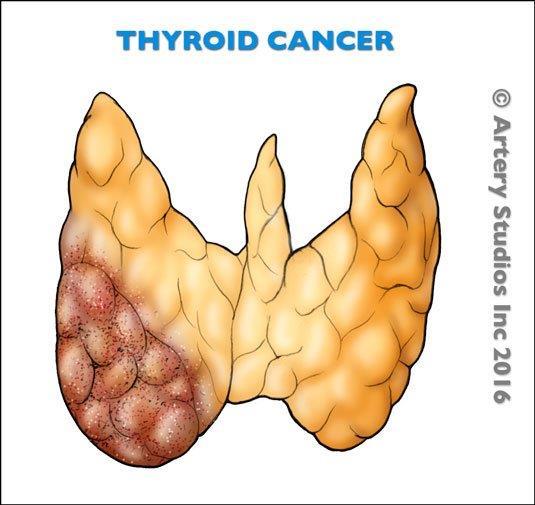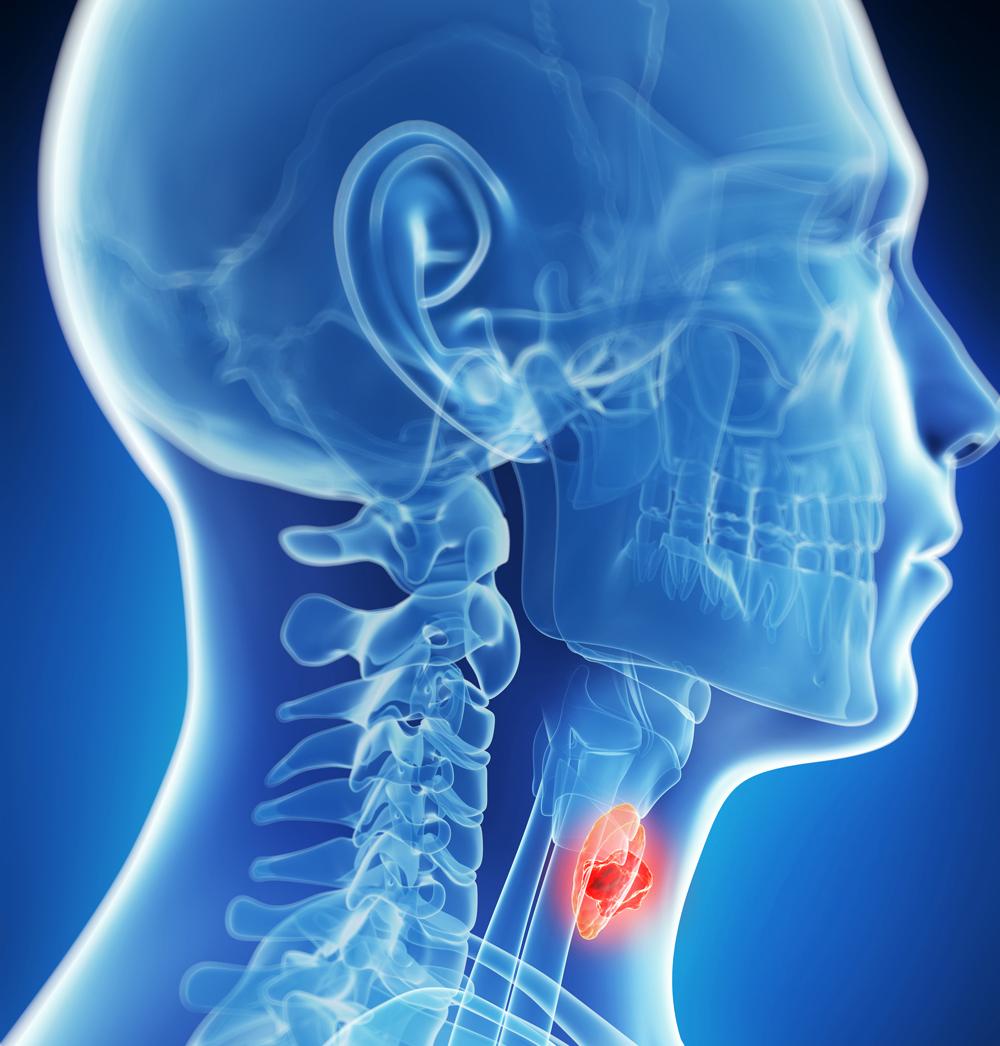Thyroid cancer
Thyroid cancer represents about 1% of all male cancers and about 5% of all female cancers diagnosed in Canada. Although this is a low rate, it seems to be increasing in recent years. One explanation is that we have better access to neck ultrasounds and small asymptomatic cancers are being detected earlier.
Most patients with thyroid cancer have a very good prognosis and can be completely cured with proper treatment.
Symptoms:
- Most patients with thyroid cancer do not have any symptoms.
- The cancer can present as a small nodule or multiple nodules in the thyroid gland. These may be detected by your family doctor on routine physical examination of your neck.
- If the nodule(s) increase in size, you could experience symptoms related to compression by the nodule(s) such as hoarseness, difficulty swallowing or shortness of breath.
- If the cancer spreads to your lymph nodes, you could feel enlarged lumps in your neck.

Types of thyroid cancer
There are 6 main types of thyroid cancers:
1. Papillary thyroid cancer (PTC)
- Most common cause of thyroid cancer (75%).
- Can occur at any age, but most commonly affects patients from 25-65 years old.
2. Follicular thyroid cancer (FTC)
- Second most common cause of thyroid cancer (15%).
- Usually affects patients older than 50 years old.
- Increased incidence in regions where dietary intake of iodine is low.
3. Hürthle cell carcinoma
- Usually classified with FTC
- Rare (3%) cause of thyroid cancer
- Usually occurs in older patients
4. Medullary thyroid cancer (MTC)
- Rare cause of thyroid cancer (5%)
- Certain genetic and endocrine syndromes increase the risk of medullary thyroid cancer.
5. Anaplastic thyroid cancer (ATC)
- Rare (1%) and rapidly growing cancer that is difficult to treat.
- Anaplastic thyroid cancer typically occurs in adults older than 60.
6. Thyroid lymphoma.
- Rare (1%) tumour of the immune system cells in the thyroid.
- Usually occurs in older adults.
Risk factors:
- Male gender
- Being exposed to high levels of radiation: Examples include living in a country affected by a nuclear accident, being exposed to radiation at work or having received radiation therapy treatment in the neck area.
- Having a genetic syndrome: These genetic syndromes increase the risk of thyroid cancer: familial medullary thyroid cancer, multiple endocrine neoplasia, Cowden's disease, Werner's syndrome and familial adenomatous polyposis.
Tests and investigations:
- Once a thyroid cancer is suspected, your doctor will order a neck ultrasound or a neck CT scan to better image the nodule as well as other possible lymph nodes in the neck that could indicate that the disease has spread.
- Your doctor may recommend a Fine Needle Aspiration biopsy (FNA) to determine the nature of the nodule.
- If there is any sign that the disease may have spread, your surgeon can order further imaging of your lungs (CT scan) or your bones.
- If the biopsy shows your have Medullary Thyroid Cancer, your doctor may recommend genetic testing since several familial diseases can be risk factors for that type of cancer.



